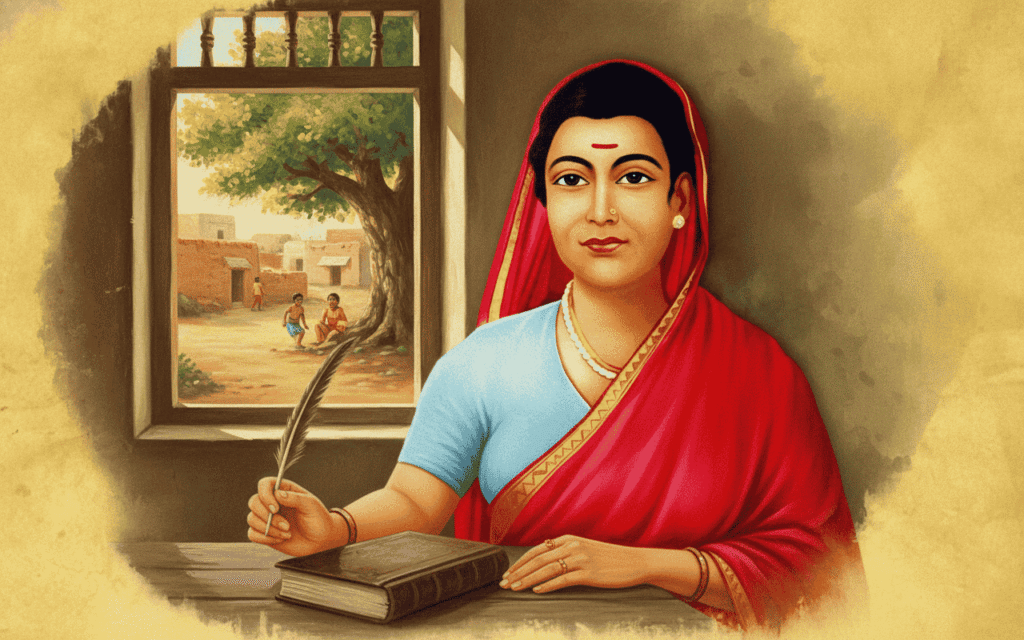Trending

Savitribai Phule was a pioneering educator and social reformer who bravely advocated for women’s rights in nineteenth-century India. At a time when women were denied education and faced severe social prejudice, she broke down boundaries by establishing India’s first girls’ school in Pune in 1848. Her activities also included widow remarriage, eliminating untouchability, and promoting gender equality.
This article tries to emphasise Savitribai Phule’s journey and long-term impact on women’s education and empowerment. Her life and activities built a solid foundation for social transformation, and they continue to inspire movements for equality and justice today.
Savitribai was born on January 3, 1831, in Naigaon, Maharashtra, to a farming family. She married Jyotiba Phule, who was just 13, when she was nine years old. Despite cultural constraints, Jyotiba encouraged her enthusiasm for learning, taught her the fundamentals, and eventually assisted her in obtaining official schooling in Pune to become a teacher.
Women pursuing an education at the time endured terrible humiliation and social harassment. Savitribai was repeatedly abused and even attacked on her way to school. However, her determination never faltered. Carrying an additional saree to school, she refused to be discouraged, establishing a brave example for future generations.
The First Girls’ School
Savitribai and Jyotiba Phule opened the first girls’ school in Pune, Bhide Wada, in 1848. Despite widespread criticism, they admitted females from all backgrounds, defying caste, religion, and gender stereotypes.
Change in Education System
Their educational program encompassed girls from all backgrounds and prioritised not only academics but also health and hygiene. This inclusive approach constituted a watershed moment in India’s educational history.
Facing Opposition from Society and Overcoming it
The Phules encountered fierce opposition from orthodox and upper-caste communities. Savitribai faced verbal and physical harassment but stayed loyal to her purpose. Her perseverance resulted in long-term social transformation, benefiting countless girls and widows.
Fatima Sheikh, India’s first Muslim woman teacher, collaborated closely with Savitribai. Together, they opposed superstitions and advocated for inclusive education. Their collaboration is hailed as a shining example of unity in social development.
Savitribai established widows’ shelters and encouraged them to remarry despite social stigma, allowing them to regain dignity and independence.
Founded in 1873 by Jyotiba Phule, this organisation sought to remove caste discrimination, encourage women’s education, and assist economically disadvantaged areas.
She worked with pregnant widows to prevent child abandonment and infanticide, playing an important role in saving lives and shifting society views.
Savitribai’s legacy of education and change continues to influence women’s growth in a variety of ways:
She made education accessible to everyone while challenging male-dominated systems. Today, women succeed in schooling, serving as doctors, engineers, scientists, and leaders.
Education prepared women for careers, entrepreneurship, and leadership positions. Women now support their families and promote economic development, especially in rural areas.
Education prepared women to fight for their rights in marriage, property, and justice. They now oppose underage marriage, dowry deaths, and discrimination.
Women now hold political roles and have an impact on policymaking, thanks to early reformers such as Savitribai. Government initiatives like Beti Bachao, Beti Padhao to honour her legacy.
Women have entered STEM and entrepreneurship. From ISRO scientists to rural business entrepreneurs, they are making vital contributions.
Despite obstacles such as income disparities and safety concerns, women inspired by Savitribai’s vision continue to struggle for justice and equality.
Her endurance in the face of criticism demonstrates the importance of strong resolve in achieving great goals.
She demonstrated that education empowers individuals and benefits society.
Savitribai’s efforts to combat caste and gender bias educate us to advocate for justice and equal rights.
She promoted financial and emotional freedom via education, giving women the ability to make their own decisions.
Despite public taunts, she transformed every challenge into an opportunity for progress.
As Satyashodhak Samaj’s leader, she demonstrated that leadership is about uplifting people and accepting responsibility.
Her labour during the plague and support for widows demonstrate her tremendous compassion and dedication to humanity.
Savitribai combined personal challenges with her aim for social transformation, demonstrating that true achievement comes from helping others.
She advocated for education as a right for all, regardless of gender, caste, or socioeconomic status—an idea that still influences today’s inclusive policies.
Her poetry became a platform for truth, education, and justice. She emphasised the power of expression in effecting change.
Savitribai Phule’s influence as an educator and reformer has inspired generations. Her tireless devotion to education and justice lifted countless women and marginalised groups, transforming opposition into reform and laying the groundwork for a more equitable society.
Reflecting on her life, author Adv. Abdul Mulla draws on his legal insights and commitment to social justice, as articulated in meaningful articles shared on platforms such as www.asmlegalservices.in and www.lifeandlaw.in. Her journey continues to be a beacon of hope for those working to establish a more just and informed nation.
Adv. Abdul Mulla (Mob. No. 937 007 2022) is a seasoned legal professional with over 18 years of experience in advocacy, specializing in diverse areas of law, including Real Estate and Property Law, Matrimonial and Divorce Matters, Litigation and Dispute Resolution, and Will and Succession Planning. read more….
Copyright BlazeThemes. 2025